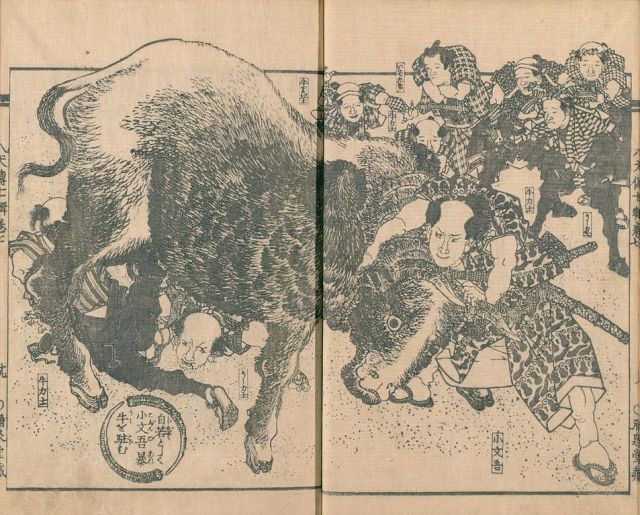
From the relatable to the amoo-sing, there’re idioms for Japanese language learners of all skill levels.
Based on the lunar calendar and a 12-year cycle, the Chinese zodiac plays an important role in multiple Asian countries. Rather than interpreting constellations, like the Western horoscope, the Chinese zodiac prescribes attributes to each year in its cycle that cover a wide range of topics, such as one’s personality and life events. Japan celebrates the start of the new year on January 1, when it also gets a head start on the upcoming Chinese zodiac animal. With celebrations for the Lunar New Year now underway across Asian countries and communities, it’s the Year of the Ox all over, so to celebrate we’re introducing five Japanese idiomatic expressions which feature the stubborn but dependable ox (or cow, since the Japanese language uses the same word for both of them).
1. Gyuuin bashoku — drink like an ox, eat like a horse
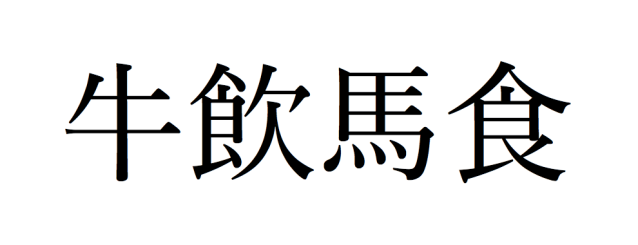
Ever ate way more than you needed to just because you can? Like how an ox drinks water and how a horse demolishes a pile of hay, this saying is the perfect way to summarize that you’re eating past your stomach’s limit. If your waistband suddenly feels a little too tight and you want to use this phrase, simply attach the verb shita (“did”) to declare “gyuuin bashoku shita” and revel in all the gluttonous glory.
▼ Don’t mind me… itadakimasu!
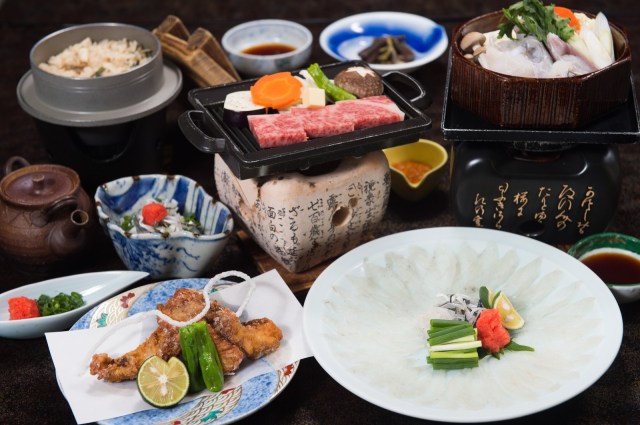
2. Kyuugyuu ichimou — nine oxen, one hair
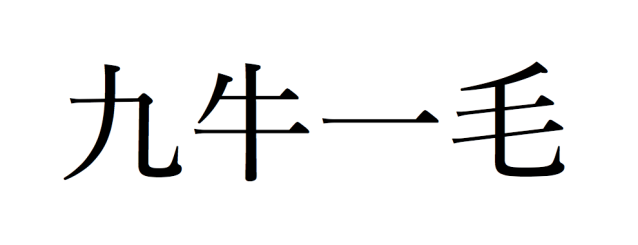
Alternately kyuugyuu no ichimou, kyuugyuu ichimou highlights something as trivial or insignificant, particularly when compared to something else larger in amount, size, or severity. However, the thing deemed trivial is not inherently lacking of value or meaning. For example, one million yen is a substantial amount of money, but it pales in comparison when juxtaposed with 40 million yen. Thus, the “nine ox” part of the idiom represents a much bigger amount, or the 40 million yen in this case, and the “one hair” part represents something that seems not-so-important in comparison a.k.a. the one million yen. The English idiom “drop in a bucket” also reflects a similar nuance, though depending on your preference, cows are definitely a lot cuter than a bucketful of liquid.
▼ Why look for one hair when you can stare at this adorable face?
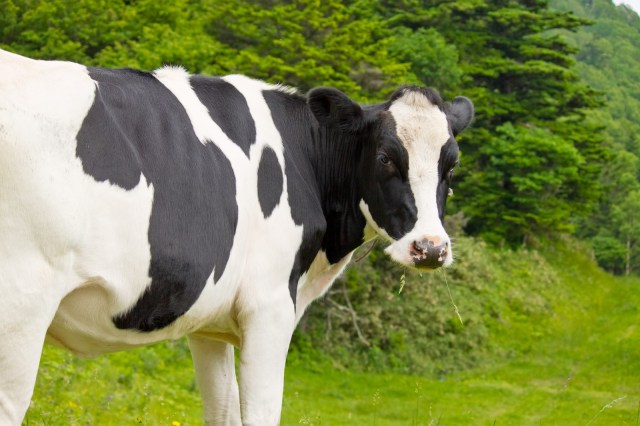
3. Keikou gyuugo — rooster’s beak, ox’s behind
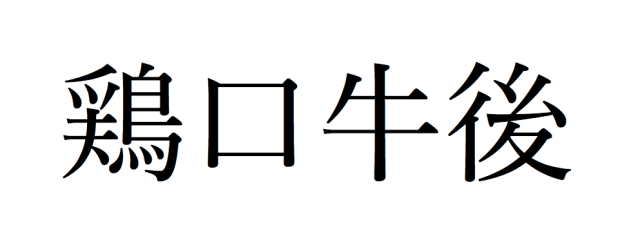
This idiomatic expression plays on the respective images of the rooster and the ox. While roosters are not the most physically powerful farm animal, they are often associated with leading positions, such as being in charge of the flock. Inverse to this is the ox. Though strong and large, the ox is subservient to the human machinations of farm work, frequently committed to the yoke and the plow. The idiom also stresses the disparity of their positions by the juxtaposition of the rooster’s small beak to the ox’s wide behind. Despite the robust farmyard imagery however, this idiom is most often used in relation to the job hunt with the following nuance: why make yourself subordinate to someone else in a large organization when you can be the leader of your own smaller company? Amusingly enough, the English compatriot to this idiom, “better to be a big fish in a small pond than a small fish in a big pond,” uses an animal motif to emphasize its point as well.
▼ On the other hand, sometimes it’s better to be an ox relaxing in a pasture!
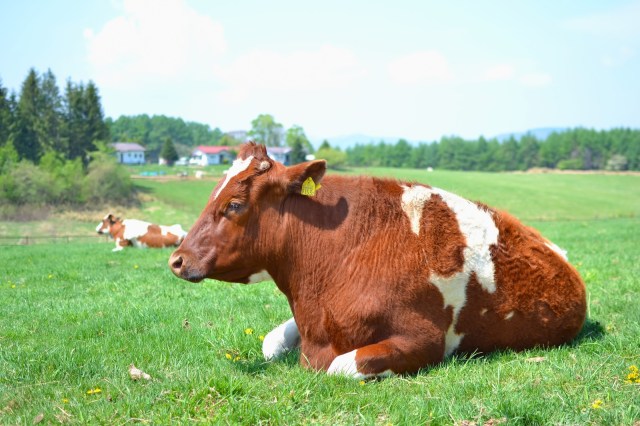
4. Gyuuho senjutsu — tactics of an ox’s pace
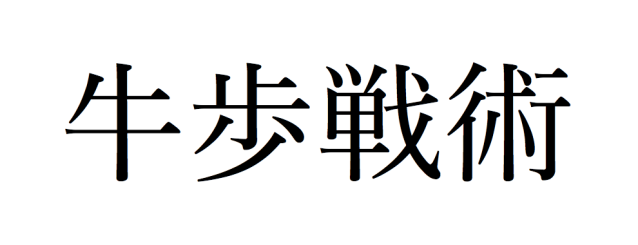
This idiom applies to situations where an individual willfully does a task slowly, especially at work, and some folks may think of the phrase “dragging one’s feet” as the closest equivalent. However, compared to its distantly related English counterpart, gyuuho senjutsu has a very special place in Japanese politics. The expression describes when members of the National Diet purposefully move slowly while turning in their vote in order to delay the passing of a bill. Gyuuho senjutsu is unlike the American filibuster in terms of process and success, but the phrase embodies the naturally languid movement of oxen and of politicians performing an expression of defiance.
▼ An example of gyuuho senjutsu happening in a 2015 Diet session (no, the video is not playing in slow motion)
5. Kangyuu jyuutou — sweating ox, filling (to the) roof
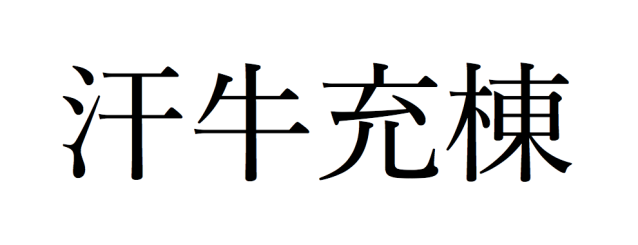
At first glance, one may think this idiom reflects a maxim about work ethic. But in reality, this idiomatic expression means… “having a great number of books.” Sweating ox? A roof? How does that relate to books? This unique saying actually employs a more extended visual metaphor for its usage. Kangyuu jyuutou isn’t necessarily describing a modest stack of books as it is describing a mountain of books—so many that the pile reaches the ceiling, and if it was to be transported by a cart, even a mighty ox pulling the cart would be sweating at the feat. And while there are more casual ways to describe the phenomenon of book hoarding that often plagues bibliophiles, such as the word tsundoku (literally “pile” and “read”), there’s something beautiful about knowing that your ever-growing book collection can be captured in a complex, scene-building idiom.
Reference: Yojijyukugo Jiten (1, 2, 3, 4, 5)
Top image: Wikipedia/柳川重宣
Insert images: SoraNews24, Pakutaso (1, 2, 3)
● Want to hear about SoraNews24’s latest articles as soon as they’re published? Follow us on Facebook and Twitter!

No hay comentarios:
Publicar un comentario